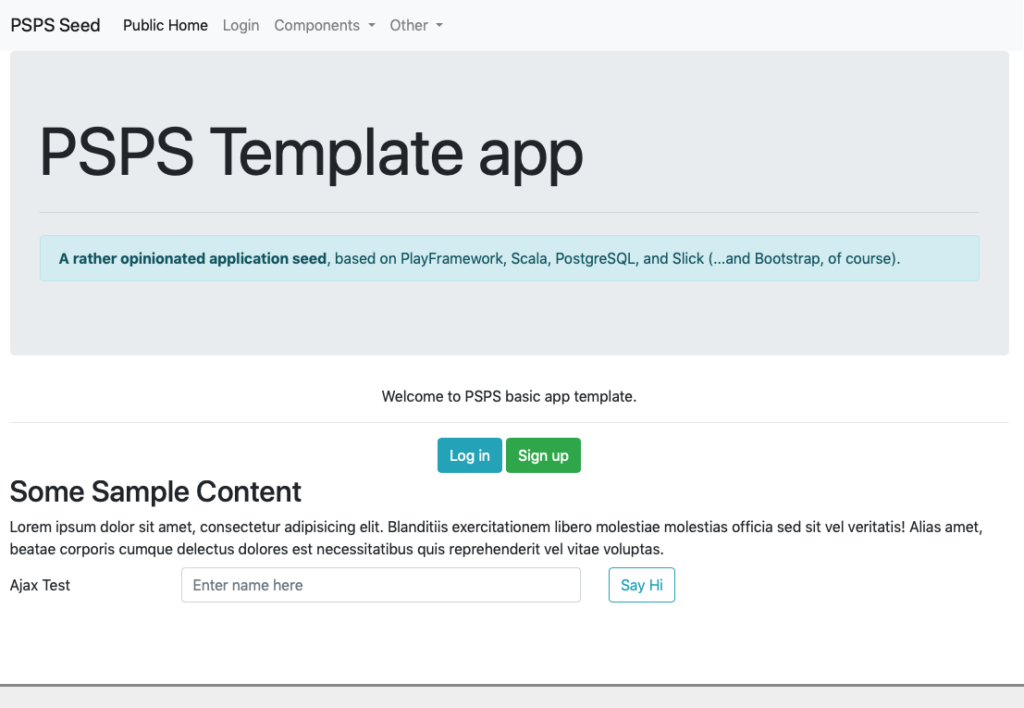At CodeWorth.io we create many web applications. Unless there’s a very compelling reason not to, we’re using the Scala flavor of Play Framework, which we find performant, fun to work with, and generally easy to maintain (static typing FTW! There. I’ve said it.).
Now, Play is a very non-opinionated framework that’s happy to work with multiple database servers, front-end kits, etc. It’s great since it provides us with the flexibility a software studio like us needs. On the flip side, though, we found ourselves re-implementing various functionalities, such as nav-bars, page layouts, and logins (including “forgot password” flow and such). The textbooks say that re-implementing functionality is wrong. That’s only partially right – when you implement a functionality for the fourth time, you’re doing a much better job at it. But enough is enough – one would also like to write some new functionality from time to time.
Enter PSPS. This is a very opinionated application seed. We built it by collecting our best implementations, and then cleaning and brushing them up one more last final time (hmm, actually, we could improve this a bit by…) . PSPS is based on technologies we found to be reliable, and easy to work with and extend. Nothing fancy or surprising, really: PostgreSQL, Bootstrap4, and Slick.
Out of its proverbial box, PSPS supports many features common to web applications:
- User management
- Public and user-only sections
- Navigation bars (including menus, and created using type-safe Scala code)
- Database connectivity
- UI Components and functionality (paging, page headers, buttons, JS alerts…)
- Page templates that support localization, CSRF, informationals, etc.
- Basic localization
- Ajax functionality (wrapping Play’s JS Routers)
- Scripts for deploying on UNIX boxes
- Documentation (yay AsciiDoc and antora)
We have been testing PSPS internally for a while now, and believe it’s ready human consumption. It might even be good for said human, e.g. if they’re a part of the Play Framework community.
So feel free to try it out – it’s open sourced under Apache v2.0. We’re happily accepting improvements, suggestions, and pull-requests. Hopefully, together we can get the Play community an excellent application seed, so we can all focus on writing new things.
